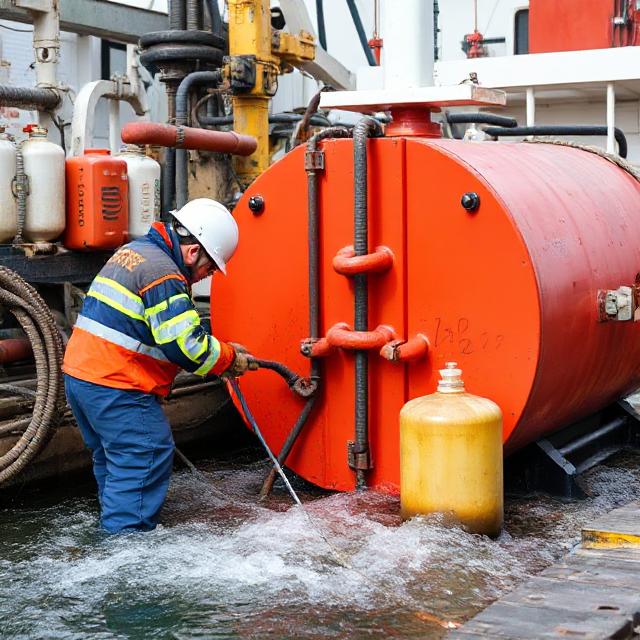Introduction to Marine Connection Liquidators
In the dynamic world of maritime operations, the lifecycle of vessels and marine equipment often involves periods of transition, whether due to economic factors, aging infrastructure, or strategic business decisions. During these transitions, marine connection liquidators play a pivotal role in ensuring the efficient, responsible, and profitable disposal of marine assets. This article explores the concept of marine connection liquidators, their functions, importance in the maritime industry, and the benefits they offer to stakeholders.
What Are Marine Connection Liquidators?
Marine connection liquidators are specialized professionals or firms that facilitate the sale, transfer, or liquidation of marine assets. These assets can include ships, boats, marine equipment, and related infrastructure. Their core function is to manage the end-of-life process for vessels and marine assets by providing valuation, marketing, auctioning, and legal compliance services.
Unlike general liquidation firms, marine connection liquidators possess in-depth industry knowledge, understanding the unique technical, legal, and market considerations associated with maritime assets. They serve a broad spectrum of clients, including shipping companies, boat owners, financial institutions, insurance companies, and government agencies.
The Role of Marine Connection Liquidators
The primary responsibilities of marine connection liquidators encompass several key activities:
- Asset Valuation and Appraisal:
Accurate valuation is crucial for ensuring fair deals for sellers and buyers. Liquidators assess the condition, market value, and potential uses of vessels or equipment, considering factors like age, condition, market demand, and salvage value. - Marketing and Sale Management:
Once assets are valued, liquidators develop targeted marketing strategies. They leverage industry networks, online platforms, and auctions to reach potential buyers globally. Their expertise ensures maximum exposure, often resulting in quicker sales at optimal prices. - Legal and Regulatory Compliance:
Maritime assets are subject to various international and domestic regulations, including flag state laws, environmental standards, and contractual obligations. Liquidators handle the legal complexities, ensuring all transactions comply with applicable laws, including documentation transfer, deregistration, and environmental disposal. - Asset Recycling and Recycling Disposal:
For vessels that are beyond economic repair, liquidators coordinate environmentally responsible dismantling and recycling, adhering to safety and environmental standards to minimize ecological impact. - Financial Settlement and Documentation:
They facilitate the transfer of funds, settlement of debts, and proper documentation, ensuring transparency and accountability throughout the liquidation process.
Importance of Marine Connection Liquidators in the Industry
The maritime industry is characterized by its global reach, high-value assets, and complex regulatory environment. Marine connection liquidators are vital for several reasons:
- Economic Efficiency:
They help vessel owners and financial institutions recover value from assets that might otherwise depreciate or become liabilities. By managing sales efficiently, they reduce downtime and financial losses. - Environmental Responsibility:
Proper disposal and recycling of ships are critical to environmental preservation. Liquidators ensure that vessels are dismantled responsibly, adhering to international standards such as those set by the International Maritime Organization (IMO). - Market Stability:
The liquidation process influences market supply and demand. Effective management prevents surplus vessels from flooding the market, which could depress prices and destabilize maritime markets. - Legal and Contractual Assurance:
Due to the complex legal landscape surrounding maritime assets, specialized expertise ensures transactions are compliant, reducing legal risks for all parties involved.
Challenges Faced by Marine Connection Liquidators
Despite their importance, marine connection liquidators confront several challenges:
- Environmental Regulations:
Increasing environmental standards require adherence to strict disposal processes, which can be costly and complex. - Market Volatility:
Fluctuations in global shipping demand affect vessel prices and complicate sales strategies. - Technical Complexity:
Vessels are intricate structures with specialized equipment. Accurate valuation and dismantling require technical expertise. - International Legal Variances:
Different countries have diverse legal frameworks governing maritime assets, necessitating a broad understanding of international law.
Benefits to Stakeholders
Stakeholders involved in marine asset liquidation derive numerous benefits from engaging professional marine connection liquidators:
- For Vessel Owners:
Maximize recovery value, ensure swift disposal, and mitigate legal and environmental risks. - For Buyers:
Access to a wide range of vessels and equipment, often at competitive prices, with confidence in legal compliance. - For Financial Institutions and Insurers:
Efficient recovery of collateral, reduction of non-performing assets, and minimized legal liabilities. - For the Environment:
Responsible dismantling and recycling help reduce pollution and promote sustainability in maritime operations.
The Future of Marine Connection Liquidators
As the maritime industry evolves amidst technological advancements and stricter environmental regulations, the role of marine connection liquidators will become increasingly specialized and vital. Innovations such as digital marketplaces, blockchain for transaction transparency, and advanced valuation tools will enhance their efficiency.
Furthermore, the push towards greener shipping practices and the decommissioning of aging fleets will expand the scope of services offered by liquidators, emphasizing sustainable disposal methods and reutilization of materials.
Conclusion
Marine connection liquidators are indispensable players in the maritime ecosystem, bridging the gap between vessel owners wishing to divest assets and buyers seeking marine equipment and ships. Their expertise ensures that asset disposal is conducted efficiently, legally, and sustainably, ultimately supporting the industry’s economic stability and environmental responsibility.
As maritime markets continue to face volatility and regulatory pressures, the importance of professional, knowledgeable liquidators will only grow. Through innovative approaches and unwavering commitment to best practices, marine connection liquidators will continue to facilitate the smooth transition of maritime assets, navigating the complex waters of marine asset liquidation with expertise and integrity.



